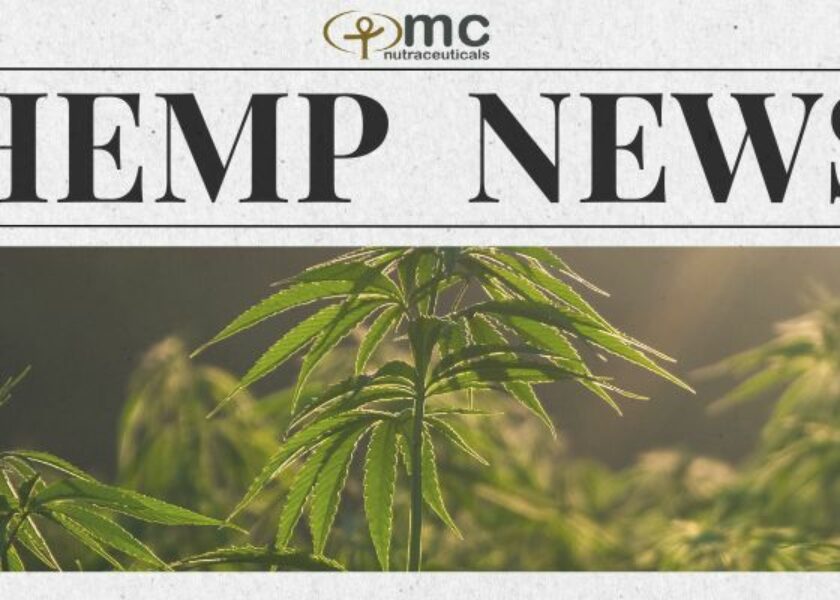The U.S. Cannabis Council (USCC) is pushing for a federal ban on hemp products intended for human or animal consumption that carry detectable THC levels. This prohibitionist push has been revealed during the one-year extension period of the 2018 Farm Bill, which was originally scheduled to expire in 2023. This proposal could deliver a significant blow to the flourishing $28 billion hemp market, not to mention the estimated 328,000 jobs it sustains (2023 National Cannabinoid Report). The call for a ban could inadvertently fuel a black market and destroy a regulated and federally legal industry—threatening consumer safety and cutting tax revenue in an industry equivalent in size to that of craft beer.
Redefinition of Hemp: Market Control vs. Equitable Access
On April 10th, the USCC sent a letter to key members of the agriculture committees in both the House and Senate. Their vision? Re-categorizing hemp products with any level of THC – and other intoxicating THC derivatives- as marijuana, thus subjecting them to the Controlled Substances Act’s restrictions. Despite being promulgated as an attempt to promote public safety, this letter makes no mention of the potentially harmful effects of THC found in marijuana. Upon closer examination, this appears to be a thinly veiled attack on a booming industry.
The USCC’s mission statement speaks of advocating for equitable access, advancing legalization of marijuana on both State and Federal levels, and restoring justice to communities harmed by prohibition. Interestingly though, this move hints at the opposite—a demand for federal intervention that would prohibit nearly all intoxicating hemp-derived consumables that come from the same plant as state regulated products, Cannabis Sativa L.
USCC proposes an additional definition of hemp products in final form:
- Made or derived from hemp or hemp bi-products;
- Contain detectable quantities of total THC and any other intoxicant that can be derived from hemp including other forms of THC; and
- Are intended to be consumed or absorbed inside the body by any means, including inhalation, ingestion, insertion, or topical application, shall be excluded from the current definition of hemp and considered marijuana as defined by 21 U.S.C 802(16).
This proposal isn’t about consumer safety—it’s about market control. State marijuana operators are seeing stagnation in sales while hemp continues to soar. The letter from USCC suggests an alignment of interests that favor existing marijuana industry monopolies. This undermines small businesses, specifically hemp entrepreneurs and farmers who have invested heavily based on the current legal definition of hemp. Yet, some of these entities (including members of USCC) either source minor cannabinoids from hemp suppliers or have their own hemp divisions that engage in interstate commerce.
Regulatory Framework vs. Prohibition
Their concerns revolve around products being untested, unregulated, and improperly labeled, thus posing risks to consumers. Their “solution” aims to differentiate how intoxicating versus non-intoxicating hemp products are regulated, as grape juice is distinguished from wine. This stance paints the entire hemp industry with a broad brush, omitting the efforts many responsible companies and state regulators make to ensure product safety. This includes rigorous testing and verification of product content.
The USCC’s constraint on the hemp market seems ill-considered. The hemp industry has been responsive to safety concerns through the continued development of regulatory frameworks that include proper labeling, age verification, and product testing. These are measures that align with consumer safety and market transparency, essential components in any industry. It fails to consider robust, standardized protocols that could mitigate risks without the drastic measure of a ban.
Protect our Farmers: Potential Agricultural Fallout
Even with protections for farmers, the agriculture sector would be dealt a blow. The hemp farming industry largely pivoted to focus on cannabinoid production in response to consumer demand, creating jobs and supporting local economies. It’s estimated that 80% of hemp crops from 2022 to 2023 were dedicated to cannabinoid production. Both seed stock and genetics programs have evolved significantly based on the current definition of hemp. Restricting hemp sales in the ways proposed threatens uncertainty of the future and negates the investments made in cultivating these crops.
The Economic Stakes: A $28 Billion Industry
The hemp industry supports hundreds of thousands of jobs and contributes notably to the national economy. As we consider its $28 billion valuation, we must recognize the significance of its role and the potential damage this reclassification could inflict. We need to collectively find a middle ground that ensures consumer safety and product quality without threatening the industry’s viability. Pushing these products onto the black market, away from regulatory oversight, could do more harm than good. The hemp community calls for balanced discussion and action that considers the industry’s economic momentum, the safety of consumers, and the livelihoods of farmers and workers. It’s about updating our framework, not undoing an industry.
Rather than instigating sweeping prohibitions that could ultimately harm both the economy and consumers, we must push for regulations that continue to support the safe growth of the hemp industry, bolster consumer protection measures, and advance research into hemp’s potential benefits. USCC’s proposal is shortsighted and counterproductive; instead, we need to foster innovation and maintain constructive oversight in the hemp sector.
MC Nutraceuticals’ Commitment to Upholding Hemp Safety and Integrity
MC Nutraceuticals actively works with industry stakeholders and state regulators to ensure hemp and hemp-derived products are rigorously tested, manufactured responsibly, and not sold to minors. Our advocacy efforts are dedicated to legitimizing and preserving a fledgling industry. Help MCN create policy that balances consumer safety with market demands. The future of hemp and hundreds of thousands of jobs are in the balance; it’s time to speak up and defend an industry that serves as a pillar for innovation, functional relief, and economic opportunity.


